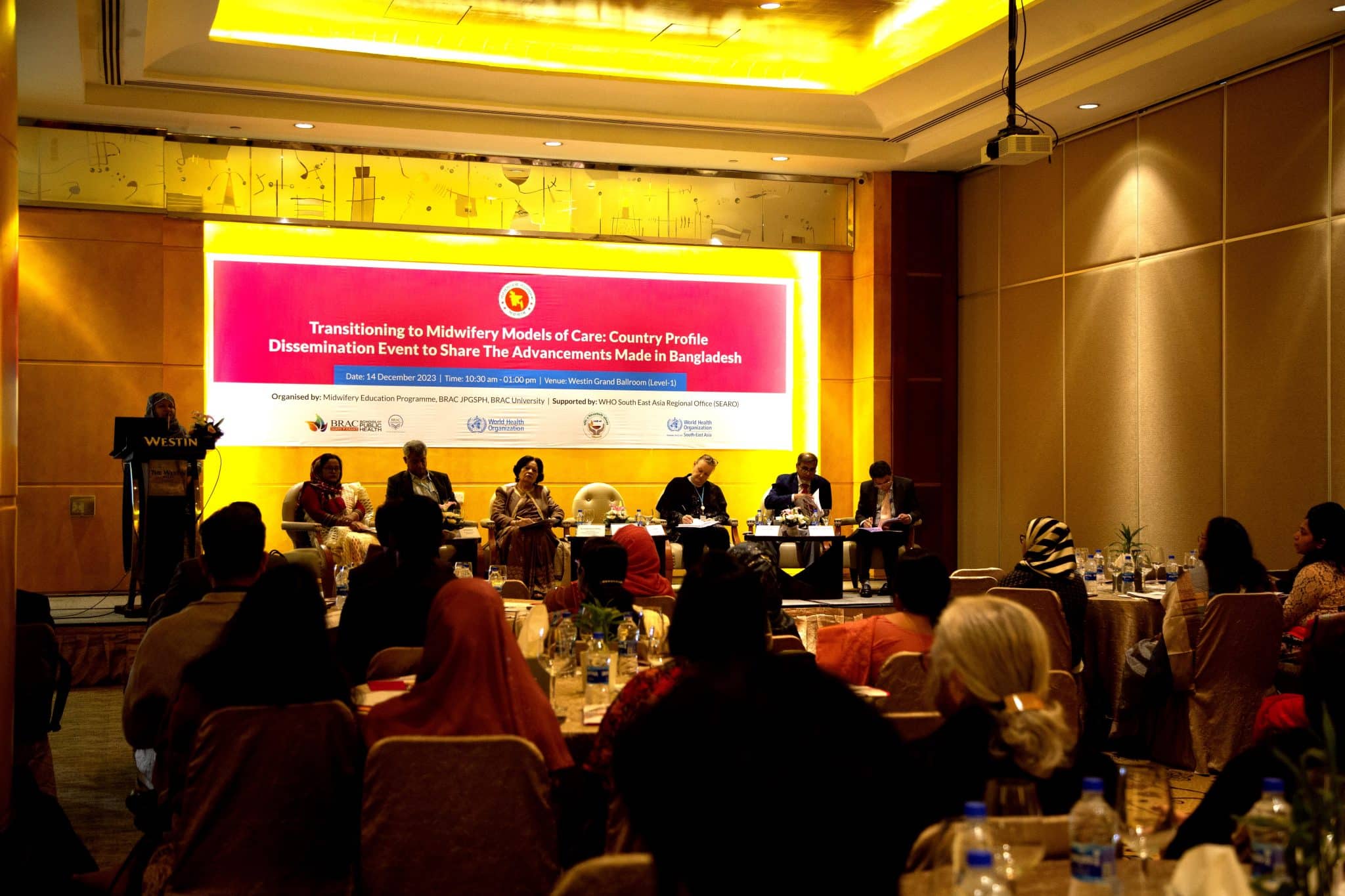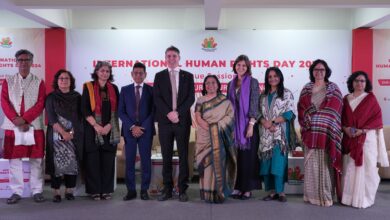
Parvez Babul
A joint collaboration event between the World Health Organization (WHO), the Directorate General of Nursing and Midwifery (DGNM), and BRAC University unveiled a groundbreaking policy brief, showcasing significant progress in the development of the midwifery cadre in Bangladesh. The event, held at a hotel in the capital today, December 14, 2023, marks a culmination of nearly six months of dedicated efforts by the partnering organizations.
The policy brief illuminates the remarkable advancements achieved in midwifery in Bangladesh, emphasizing the critical importance of continued investment in this vital field. Focused on reducing maternal and newborn mortality, morbidity, and stillbirths, the document utilizes milestone Power Points and progress dashboards to provide concise information for government-led policy dialogues, guiding future investments in midwifery.
Dr. Halida Hanum Akter, recently she was awarded by the government prestigious “Begum Rokeya Podok” this year 2023 for her great contribution in medical science and public health in Bangladesh. As the special guest at the event, Dr Halida said, “Still women deliver 50 percent babies at home instead of going to the hospital, and they die due to the pregnancy related complications. 28 percent stillbirth is here and the babies die unnecessarily. So the community clinics must involve midwife so that the women in grassroots level get adequate health services. And men must be included in development of health services for the women.”
Joy Kemp, Midwifery Specialist, Midwifery Education of UNFPA Bangladesh, said, “We must hear the voice of women and the voice of midwives as well. Midwifery must be addressed with greater emphasize. Public-private coordination also is a must.”
Under the leadership of the Directorate General of Nursing and Midwifery (DGNM), in alignment with WHO SEARO guidelines and with support from the WHO South-East Asia Regional Office (SEARO), BRAC University’s Midwifery Education Programme has played a pivotal role in recording the advancements made in transitioning to a midwifery model of care in the WHO South East Asia Region.
Rashida Akter, Deputy Registrar, Bangladesh Nursing and Midwifery council said, “To address the UN SDGs, Midwifery profession is crucial. The family members must listen to the pregnant women, where do they want to deliver their babies? Do we think and get their opinion to save their lives? So women want supportive delivery. And to conduct more research is truly important to address the barriers, problems and taboos to ensure safe motherhood in Bangladesh.”
Addressing the event as the chair, Director General of Directorate General of Nursing and Midwifery, Maqsura Noor NDC, said, “With the SDG targets set for 2030, we are working hard to fill up the existing gaps in the midwifery profession in Bangladesh and ensure quality healthcare for all.”
The policy brief highlights the substantial headway in developing a cadre of midwives through educational, regulatory, and associational initiatives. Notable achievements include political support since 2008, the adoption of strategic directions, the Bangladesh Nursing and Midwifery Council Act in 2016, and the establishment of the Midwifery Unit in 2018, showcasing the nation’s commitment to midwifery.
Bangladesh’s progress encompasses advancements in midwife education, association building, and deployment in humanitarian settings, emphasizing the invaluable role of midwives in crises. The nation has successfully integrated midwifery within its health system, increased access to services, established midwife-led units, and deployed midwives in the public sector.
On behalf of WHO, its National Programme Officer Md. Nuruzzaman said “Well-packaged maternal care provided by professional midwives can play a significant role in reducing maternal and infant mortality and C section. The government needs to expand the midwifery model of care all over Bangladesh in a phased manner.”
Whereas successes are acknowledged, the brief underscores the need for further workforce development, improved inter-professional teamwork, and heightened monitoring and evaluation within the health system. Disparities between the private and public sectors are identified, emphasizing the necessity for ongoing monitoring, evaluation, and capacity building in this regard.
While leading the midwifery education programme for BRAC University, Dr. Sharmina Rhaman has also been playing a key role in this initiative. She mentioned as the key note speaker, “Midwives are at the lead of improving maternal and newborn health in Bangladesh. Considering the need for their services across the country, more than 22,000 midwives need to be deployed to different health facilities including district and medical college hospitals in the near future. Private sector regulation for midwifery education and service is the priority issue.”
The policy brief concludes by stressing the critical need for ongoing investments in midwifery to sustain and enhance the progress achieved in Bangladesh. It provides valuable insights for policymakers, healthcare professionals, and stakeholders involved in shaping the future of maternal and newborn healthcare in the country.
To raise awareness and garner support for skilled midwives, speakers at the event called for action to improve working conditions and enhance health outcomes for women and families. Midwifery development must be a priority to save the lives of women and to ensure safe motherhood as well as to reach the Goals of Sustainable Development (SDGs) leaving no one behind.





